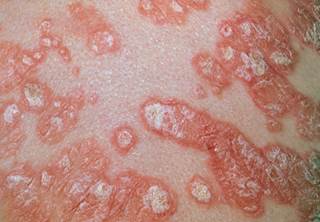
Patients with moderate to severe plaque psoriasis typically require long-term treatment to achieve disease control.
According to study results published in the Journal of the European Academy of Dermatology and Venereology, long-term treatment with ixekizumab is not associated with any new safety signals and should be considered acceptably safe and tolerable for the treatment of moderate to severe plaque psoriasis.
Previous studies have shown ixekizumab to be effective with no unexpected safety signals to treat chronic psoriasis in a short-term treatment period up to 24 weeks. The investigators of this study sought to evaluate the long-term safety and tolerability of ixekizumab for treating patients with moderate to severe plaque psoriasis for up to 3 years.
The present analysis reported the cumulative safety data on up to 319 weeks of ixekizumab exposure in a cohort of 5689 adults with moderate to severe psoriasis recruited from 11 clinical studies. The primary outcomes were treatment-emergent adverse events, including serious infections, oral candidiasis, major adverse cerebrocardiovascular events, non-melanoma skin cancer, malignancies, and inflammatory bowel disease. Adjusting for exposure period, the investigators reported the incidence rates (IR) per 100 patient-years; frequencies and exposure-adjusted incidence rates were summarized by 12-week intervals through 156 weeks (3 years).
Of the 5689 participants, 3787 received ixekizumab treatment for at least 1 year, 3162 for at least 2 years, and 1659 for at least 3 years. The participants accounted for 12,061.5 patient years of overall ixekizumab exposure. Over 156 weeks, a total of 4775 (83.9%) patients reported treatment-related adverse events. The most commonly reported adverse events were similar to previous reports of short-term exposure, including infections (28.7 IR; 95% CI, 27.8-29.7), injection-site reactions (7.0 IR; 95% CI, 6.5-7.5), and allergic reactions/hypersensitivities (6.1 IR; 95% CI, 5.6-6.5).
The incidence rate of opportunistic infections was 1.8 (95% CI, 1.6-2.1), the most common being mucocutaneous candidiasis, with an incidence rate of oral Candida infection of 0.9 (95% CI, 0.8-1.1). The frequency and incidence rates of adverse events did not increase over time with longer ixekizumab exposure, nor did the investigators identify a trend of increasing incidence rates for adverse events of special interest over the study period. Serious adverse events were reported in 11.8% of patients, causing 6.7% of patients to discontinue treatment; death occurred in 23 (0.4%) patients.
As patients with moderate to severe plaque psoriasis typically require long-term treatment to achieve disease control, researchers concluded that ixekizumab had an acceptable long-term safety profile consistent with previously reported short-term safety data in treating this patient population.
Disclosures: This study was sponsored by Eli Lilly and Company.
Reference
Langley RG, Kimball AB, Nakagawa H, et al. Long-term safety profile of ixekizumab in patients with moderate-to-severe plaque psoriasis: an integrated analysis from 11 clinical trials [published online September 10, 2018]. J Eur Acad Dermatol Venereol. doi:10.1111/jdv.15242